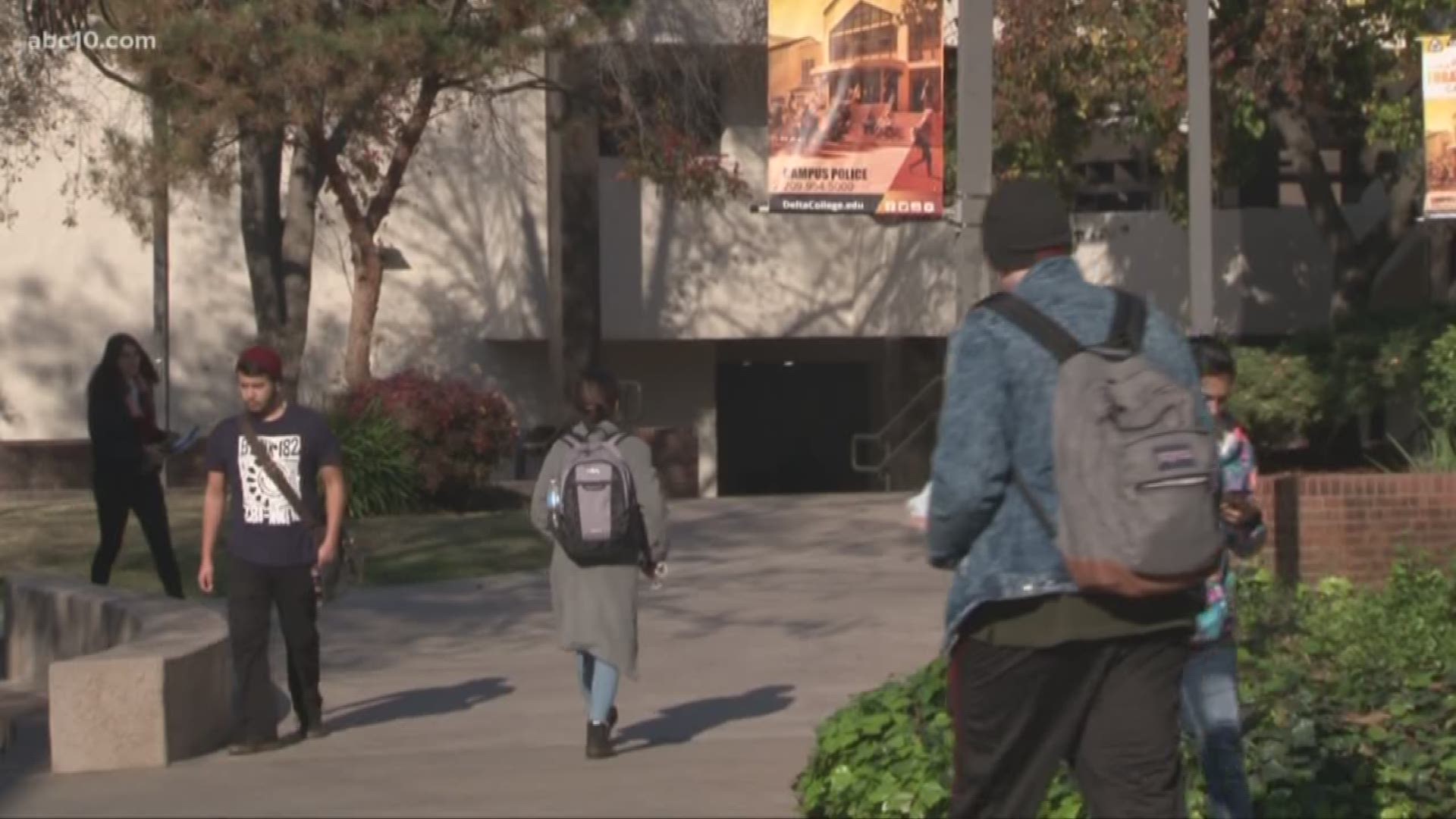SACRAMENTO, Calif. — The biggest differences between a University of California and California State University don't necessarily have anything to do with the quality of education.
“A bachelor’s degree is a bachelor’s degree – they’re equivalent in terms of education,” said Richard Yang, an articulation officer and counselor at Sacramento City College.
Depending on what a student wants in their education, a UC bachelor's degree might not be worth twice what a CSU bachelor's degree costs in the same subject.
On the other hand, it's possible that up to 16 weeks of additional classes at a CSU every year might not be desirable for a student who craves the quicker learning pace that a UC generally provides.
Different goals and attractions
UCs "were designed to be the major research universities that would also house the professional schools, such as law, medicine, dentistry, pharmacy...,” said Debra Louie, a counselor with San Joaquin Delta College.
While the majority of requirements for the UC and CSU campuses are the same, there’s a reason for the differences between the two.
CSU’s were designed to take the top 1/3 of graduating high school seniors, according to their 1965 Master Plan.
“So, the admission requirements for GPA, test scores, and course preparation are designed to attract that particular pool,” Louie said.
The UC system was designed to only take the top 9 percent high school graduates.
A CSU vs. UC Bachelor's Degree
“Students have to understand that, regardless of which system they go to, they will get a solid education and a solid foundation to continue in that field or to go to a different field in the professional level,” Yang said. “There is no true difference [between a bachelor’s degree from a UC and a CSU].”
For comparison, spending a year at Sacramento State to get a bachelor’s degree will cost around $7,300 with tuition and fees, while a year at UC Davis can cost $14,402.
Undercutting the cost of both of these institutions is the community college system, which can offer $46 per unit. By design, the courses students take for major preparation or lower division requirements for transfers to UCs and CSUs are meant to be comparable to courses at the four-year level.
The graduate level is where differences start to become more apparent.
A CSU might be better able to prepare students for getting a license, while a UC, according to Yang, might focus on research and theoretical components.
Research vs. Job Oriented Goals
“I tell students that if you’re into the research and maybe publishing, maybe a UC is a better fit,” Yang said. “If you’re saying ‘I don’t know what I want to do, but I know I want to get a job after I get a bachelor’s degree’, [then] a CSU is a good fit because you get those skills.”
UC research orientation:
- Big seminar classrooms with a few hundred students
- Some classes possibly taught by graduate students pursuing a PhD
- The professor could be doing research or publishing an article in their field
- Designed to house professional schools for law, medicine, dentistry, and pharmacy
This kind of orientation could be optimal for students who actually want to engage and connect with professors doing research in the fields they want to enter.
CSU job orientation:
- Can provide a more hands-on education and help students prepare for getting licenses at upper levels
- Designed to prepare teachers and provide opportunities for students to get a four-year degree
- Semester system pacing might be easier for students going to school while holding a job
“They figure the students are going to get one degree in business administration - maybe a focus in an area like accounting, [and] once they get their bachelor’s degree, then they’re ready to go to work,” Yang said.
A difference in pacing
With a few exceptions, CSUs and UCs operate with different schedules. The majority of UC’s run on the quarter system (about 10 weeks) and the majority of CSUs run on a semester system (about 15 to 18 weeks), similar to many community colleges.
The longer schedule and pacing can help students work, since they’ll have more time in between classes to keep a part-time school schedule and full-time work schedule.
For some students who like the pacing of a community college or enjoy having time to settle into subjects, a UC will have a very rapid pace in comparison to what they experience before. However, that pace can also be endearing to students who enjoy learning that way.
________________________________________________________________ONE MORE FROM ABC10: Former client describes interactions with alleged mastermind behind college admissions scandal
“It was shocking, I think, because the Rick I knew when I was a teenager was such a straight and narrow kind of guy, and so trustworthy and the kind of guy who would be like your sports coach,” said Kim Perry, who told ABC10 she was a client of his back in the 90s.

